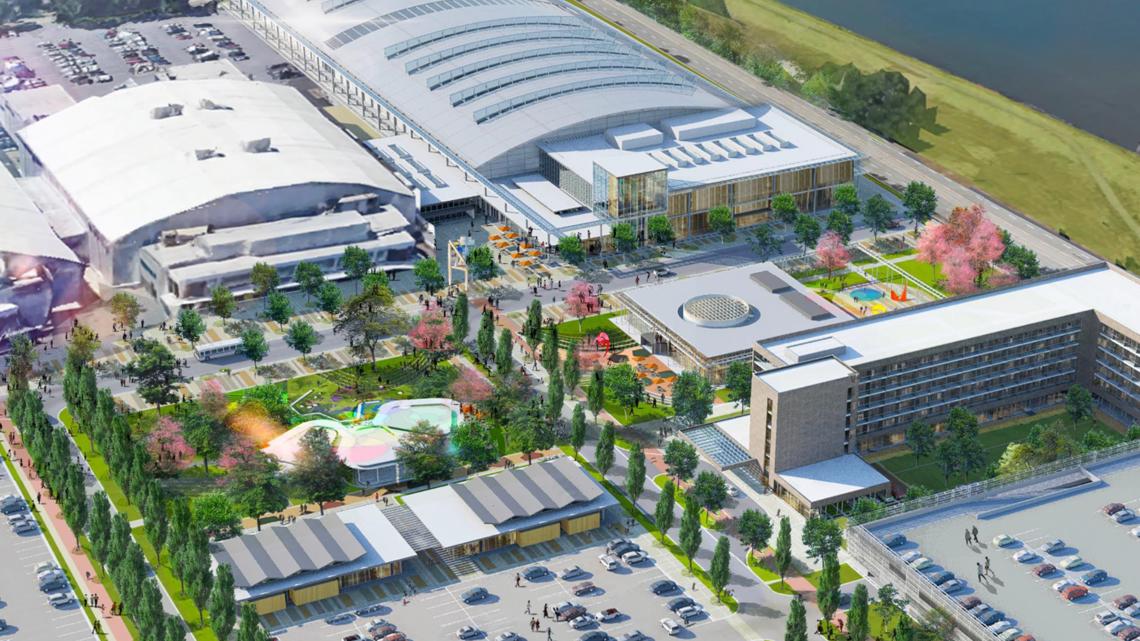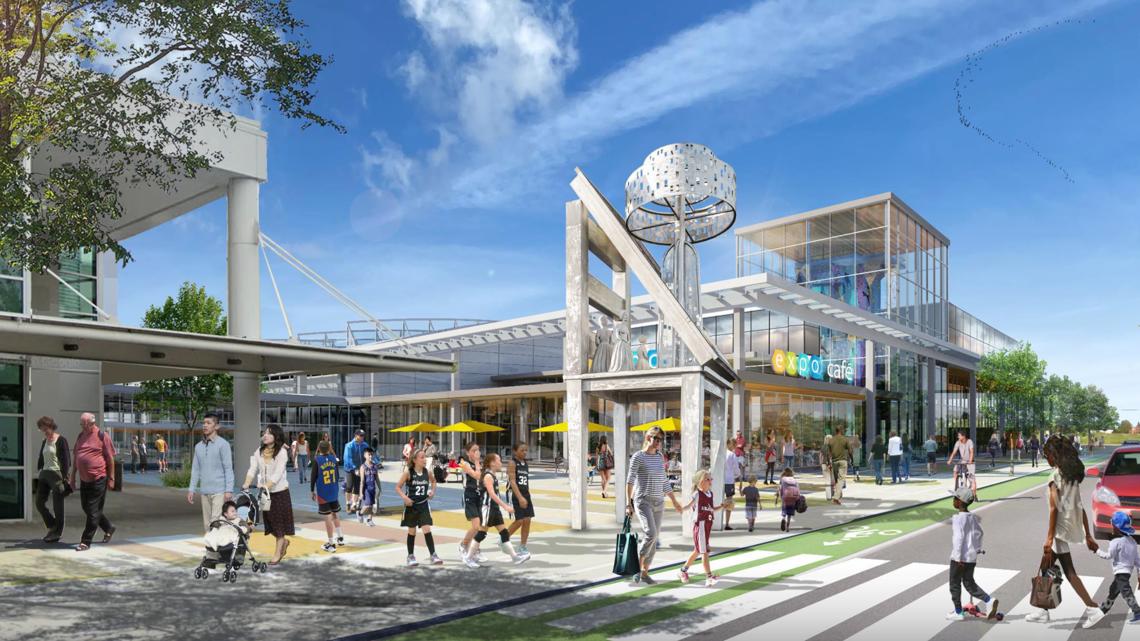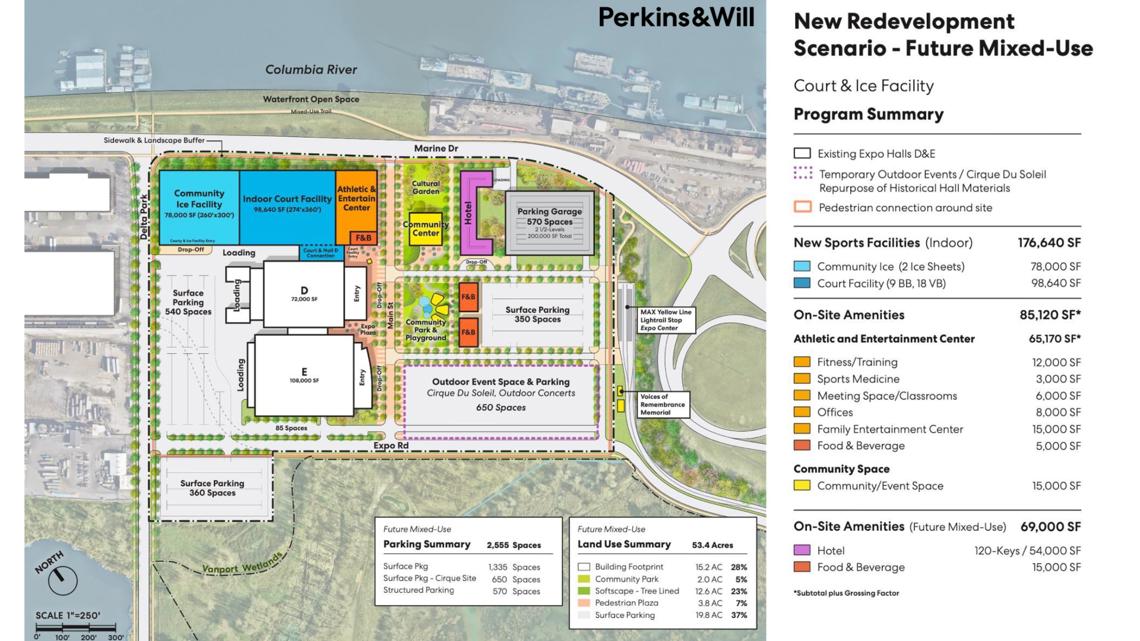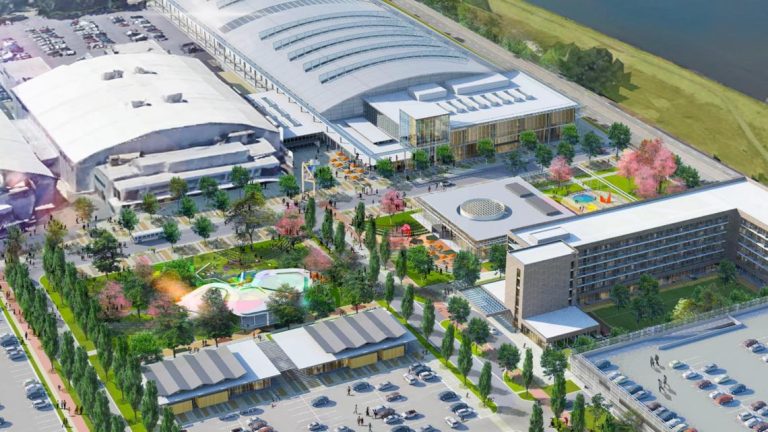The Metro Council will vote in January on a $300 million plan to convert the Expo Center into a sports hub to bring multibillion-dollar sports tourism to Portland.
PORTLAND, Ore. — The Metro Council is considering a roughly $300 million plan to convert the 53-acre Portland Expo Center site in a sports and cultural complex.
If approved, it would create a sports hub in the area for amateur and recreational sports, bringing the multibillion-dollar sports tourism industry to Portland’s doorstep.
Currently, the exhibition center is primarily used for local trade shows and nothing else. Metro, the regional government that controls and operates the expo center, is planning a new series of event centers that would be a weekday destination, with a year-round ice rink and facilities for club and league sports in the evenings weekdays, as well as tournaments. on weekends.
Jim Etzel, CEO of Sports Oregon, said the West Coast currently has only a few places dedicated to sports tourism, where families travel with their children’s sports teams for tournaments.
“When you look at a heat map of these facilities across the country, the West Coast is basically empty,” Etzel said. “So, (there is) significant interest from our federations and event rights holders in going to this part of the country. There is significant pent-up demand.”


What would the sports complex include?
The committee that helped Metro decide what should be included considered four scenarios involving sports ranging from ice skating to hockey to basketball or even football. But over time, various options were removed due to operating cost and demand.
Currently, Metro is considering a sports complex project that would include a combination of two ice rinks, basketball and volleyball courts, and the possibility of installing a 200-meter indoor track in the future.
As currently built, the Portland Expo Center could be converted to accommodate 18 basketball courts for a large tournament or up to 24 volleyball courts.
“We have 54 acres and two concourses, particularly concourses D and E, which are extremely underutilized,” Etzel said. “And concourses D and E – it’s like a 70-yard head start in a 100-yard race in that we have 180,000 square feet of 34-foot clear, extended ceilings that we can arrange all kinds of sports on the ground.”
Metro councilors, including Metro Council President Lynn Peterson, urged planners to think “flexible” when designing and deciding how best to configure space for sports.
“Sports come and go in terms of popularity,” Peterson said.
But so far, all Metro councilors seem to be on board and excited about the plan.
“We need to become a host region,” said Councilor Ashton Simpson.


Historical significance
Although the site has the potential to have an economic impact, Metro councilors at Tuesday’s meeting agreed that historical respect of the site must be in the foreground. The location has ties to indigenous communities that lived along the Columbia River. Next, the Portland Expo Center, originally built in 1921 as a livestock showroom, was used during World War II as a “stop” in the internment of Japanese Americans. A few years later, Vanporta nearby neighborhood where much of Oregon’s black population lived, was destroyed in a massive flood.
“Expo was Vanport’s next door neighbor,” said former Metropolitan Councilor Ed Washington.
Washington, who grew up in Vanport, talked about shooting marbles at the Expo Center as a child and attending several events with all the other school-aged children in Vanport.
“This story is very important to me personally because my family’s life was forever changed when they lost their home,” said Lynn Fuchigami Parks. “They lost their farm and were unjustly incarcerated during World War II for no other reason than having a face like this.”
Planners said the complex would include homages to these historic connections in the design, as well as a community center, park and garden at the center of the site.


Cost and revenue forecasts
Currently, the project to redevelop the Portland Expo Center into a sports complex is estimated to cost around $300 million. About half of that amount would be spent on building sports facilities, a community rink and courts.
The plan also includes the creation of a sports and entertainment center and community center to support the site. Collectively, their construction is estimated to cost between $74.8 million and $76.6 million. Another $67 million would be spent creating a community park and playground, as well as parking.
Etzel admitted that efforts to convert the expo center could start small, investing in flooring in a few rooms and equipment, like basketball hoops and nets.
Initial construction costs for the entire project will likely be funded by existing motor vehicle taxes, grants and federal funding.
Once the complex is operational, Hunden Partner, a real estate consultant, estimates the sports complex could bring in about $11 million a year, much of which would come from renting the rink and fields as well as parking fees.
Etzel talked about also requiring event organizers to sign a “stay to play” agreement, which would require visiting teams to stay in hotels in Portland, providing another economic boost to the city.
“It’s a big deal – first of all – because it’s going to have significant tourism and economic impacts, which is phenomenal for the hospitality industry and the food and beverage industries, much of which is made up of small businesses,” Etzel said.
The Metropolitan Council is expected to vote on the plans at two meetings scheduled for Jan. 8 and 9.


